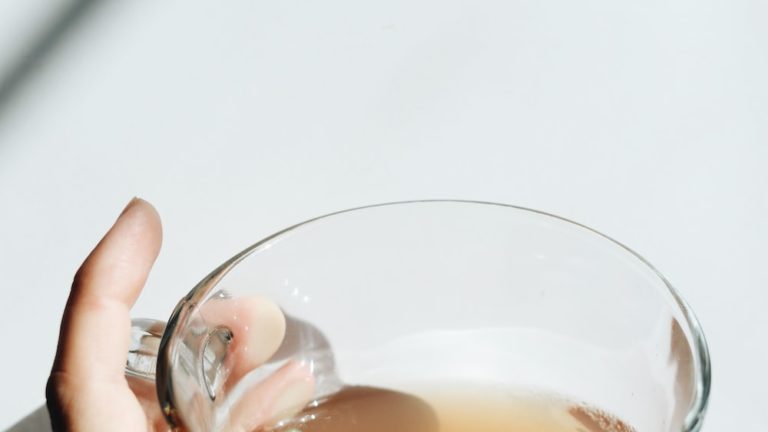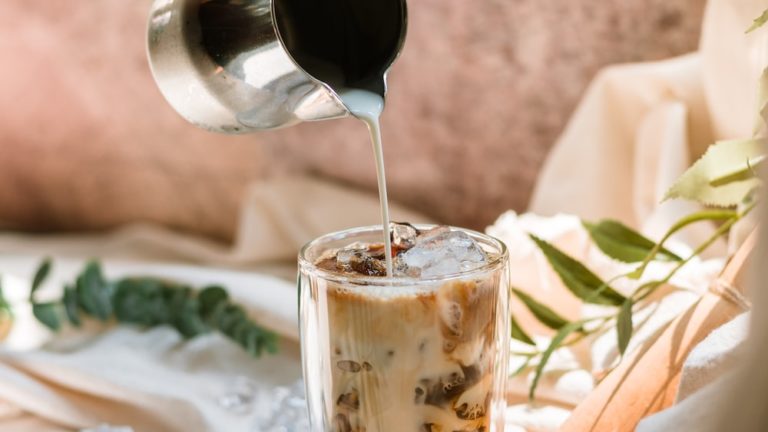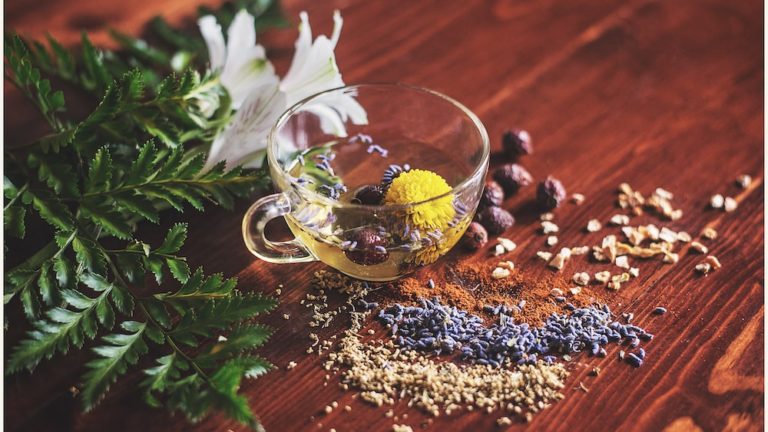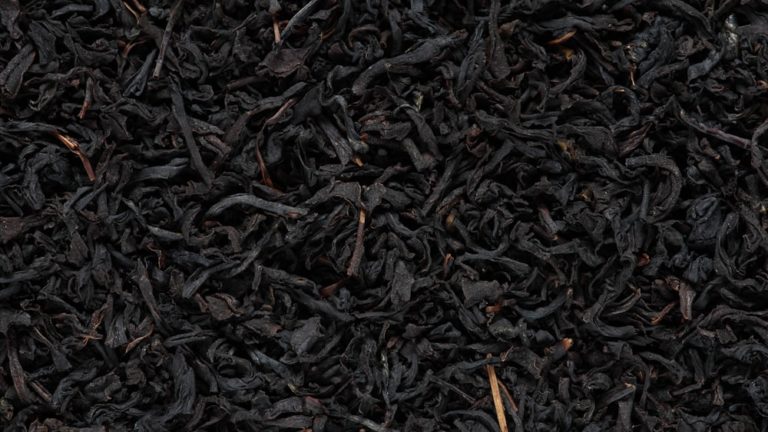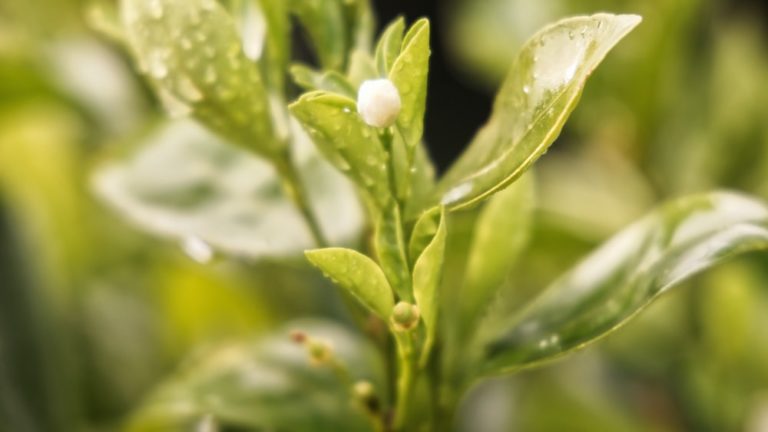Rooibos Tea: Low Oxalate Benefits And Side Effects
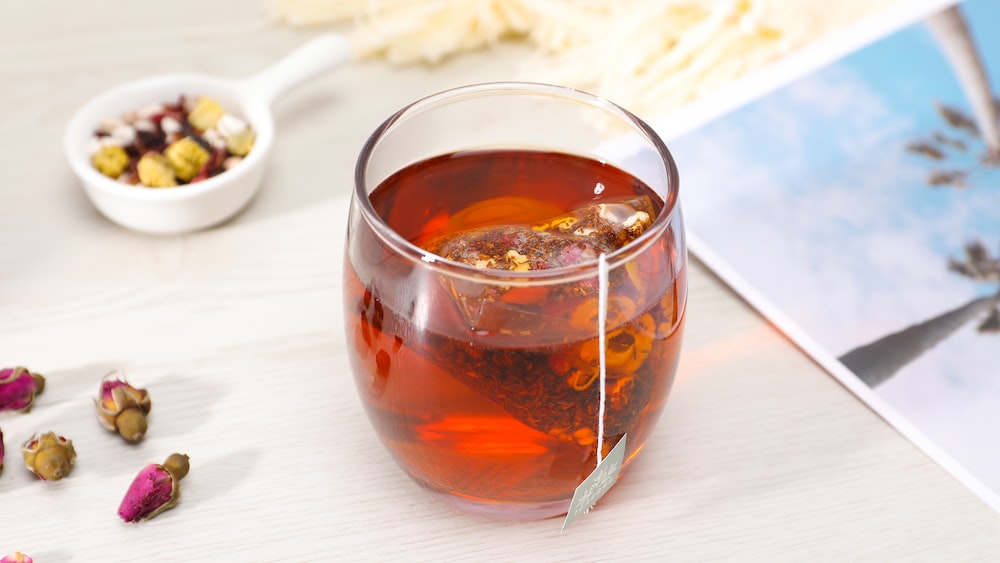
Rooibos Tea: Low Oxalate Benefits And Side Effects
Tea drinking enthusiasts, welcome! Ever wished you could brew, sip, savor, and teleport straight to an African savannah boasting a picturesque sunset? Well, say hello to the magic potion, Rooibos Tea! But, wait! Before you go in search of this crimson cup of wonder, let’s meander through crucial details, like how it’s low in oxalate and why you should care. You’re probably rubbing your temples, asking, ‘what in the name of Karl R.O.S. is oxalate?’ Humorous side notes aside, we’re about to dive headfirst into an enlightening journey about the obscure world of oxalate and its relationship with Rooibos Tea.
Who doesn’t adore the exotic, right? That’s why one might want to quench their curiosity by comparing Rooibos Tea vs Green Tea, tea arcanum’s beloved child. And, hold your horses, this isn’t a boring ol’ tea party. We’ll explore leaves, molecules, and tons of fine details you’d want to tip your tea sombrero to. Cling on to your dainty teacups because we’re about to saunter through the world of tea bush mysteries.
Understanding Rooibos Tea
Take a deep breath…Waft in the brilliant hues, the earthy aroma, and the sweet, nutty flavor packing a punch. This, dear tea aficionados, is your first deep inhale of understanding Rooibos Tea.
What is Rooibos Tea?
Ah, now, let’s unmask this caped hero, shall we? Rooibos Tea, pronounced ‘roy-bos,’ refers to a kind of herbal tea native to the south-western region of the African continent. It’s a blend derived from an indigenous shrub, Aspalathus linearis, rather ironically not a true tea plant. This caffeine-free upstart brought its A-game to the global tea stage and wasn’t about to be sidelined.
The beauty of Rooibos Tea lies in its simplicity and versatility. It’s not the kind you mess with, friends. No additives required, no milk demanded, no sugar begged. In fact, go ahead and chill in the fridge for a refreshing iced tea version! Furthermore, Rooibos Tea is a treasure trove of minerals and antioxidants, making it a powerhouse of health benefits.
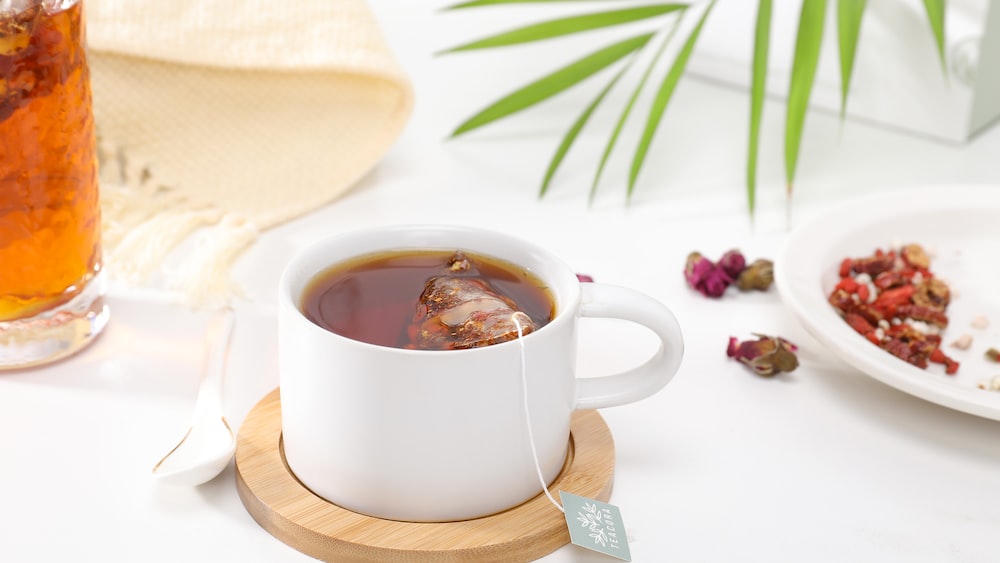
Though still a rookie, Rooibos Tea struts quite a reputation within the tea-loving community. Known for its distinctive red-tinted color or an amiable green sibling, it’s typically consumed as is or accommodates a dash of milk and sugar if you’re an audacious tea taster (you rebels!). Now, most importantly, let’s explore the Rooibos Tea oxalate levels, which play a clutch role in the tea’s health benefits.
Rooibos Tea is a caffeine-free, versatile herbal tea with a treasure trove of minerals and antioxidants, making it a powerhouse of health benefits.
Origin and Cultivation of Rooibos Tea
Trace the pages of burning red sunsets to the rugged landscapes – home to the fertile conditions of Cederberg, South Africa. Here, Rooibos Tea is cultivated like an art form, the artists being the Khoisan people who’ve been brewing this crimson concoction for centuries. Grown wildly, the cultivation of these red bush leaves takes place in the arid heart of South Africa enveloped by Mother Nature’s wisest but harshest elements – rainfall scarcity, sandy soils, and extreme temperatures.
Planted annually between January and March, the plants are harvested during the South African summer between February and April. Once harvested, the raw product goes through an oxidation and drying process, where leaves change from green to the distinctive vibrant red hue, leading to their transformation into the Rooibos leaves we desire. Ah, yes, the metamorphic journey from a plain bush leaf to a potent transformative brew, in all its bold, red, aromatic fervor!
The leaves’ journey doesn’t end here, though. They’re roughly cut, dampened, and left to ferment. This fermentation process is crucial for heightening the leaves’ flavor and enhancing the tea’s signature red color. After this magic potion-like transformation, the leaves are sun-dried and packaged, ready to make their voyage into your teacups.
The Oxalate Content in Rooibos Tea
Enough of the whimsical dance through tea gardens, it’s time to put our serious, scientific glasses on. Welcome to the analytical side of our tea talk. It’s time to discover the secret behind Rooibos Tea’s unique standing in the world of tea – an intriguing aspect is its oxalate content or, more precisely, the lack of it.
What is Oxalate?
Let’s do a little chemistry 101, shall we? Oxalate, for those uninitiated, is an organic acid compound found in various plants and can form crystals in the human body. While an overaccumulation of oxalates can cause health problems, it’s usually harmless in moderation.
However, it’s not all doom and gloom, and this is where Rooibos Tea struts its way back under the spotlight. Blessed with remarkably low oxalate levels, this elixir stands on a pillar for those with specific dietary requirements or specific health concerns, like kidney stones. (Don’t fret, we’ll discuss that more in a bit!)
Oxalate in Rooibos Tea vs Other Teas
Now that we’re buddies with oxalate, let’s unravel the tale of comparing the oxalate content in Rooibos Tea vs Green Tea and other popular types. FYI, the oxalate levels in Rooibos Tea are infinitesimal compared to other fan favorites like black or green tea. In fact, this is one of the primary reasons why it’s often recommended for individuals who need to limit their dietary oxalate intake. Remember our buddy Karl R.O.S.? His scientific endeavor confirmed the notable absence of any oxalate crystals in Rooibos Tea! This is a triumphant moment for all kidney stone combatants out there, isn’t it?
But does the low oxalate content make Rooibos Tea less delicious or less healthy? Absolutely not! This rust-red tea is a box of marvels when it comes to health benefits. And that smooth, robust palette? Unaltered, unapologetic, uncompromised. Brew on, our dear tea lovers!
Health Benefits of Low Oxalate in Rooibos Tea
With the oxalate content contained, let’s rejoice the health victories we’re about to unearth!
Prevention of Kidney Stones
Brew a pot of Rooibos Tea, sip, unravel, and repeat. Guess what? You might be helping prevent kidney stones. With its low oxalate content, Rooibos Tea draws an uncrossing line in the sand against the formation of calcium oxalate stones in kidneys. No wonder why it’s given a standing ovation within health-conscious circles.
Since excessive oxalate levels can lead to the formation of these dreaded stones, individuals suffering from this condition should ideally choose a tea with minimal oxalate content. And well, my dear tea enthusiasts, in walks our hero – the noble, the gallant, and the low-oxalate, Rooibos Tea.
Now, remember, an ounce of prevention is worth a pound of cure, as our good ol’ friend Benjamin Franklin wisely professed. Regular sips of Rooibos Tea might just be that ounce of prevention for your kidneys!
Regular consumption of Rooibos Tea, with its low oxalate content, can help prevent the formation of kidney stones.
Benefits for People with Calcium Oxalate Stones
Rooibos tea holds great benefits for those unfortunate tea lovers grappling with calcium oxalate stones. You see, this herbal brew boasts low oxalate content compared to other teas. Regular consumption of Rooibos tea can significantly reduce the oxalate level in the body, decreasing the risk of stone formation.
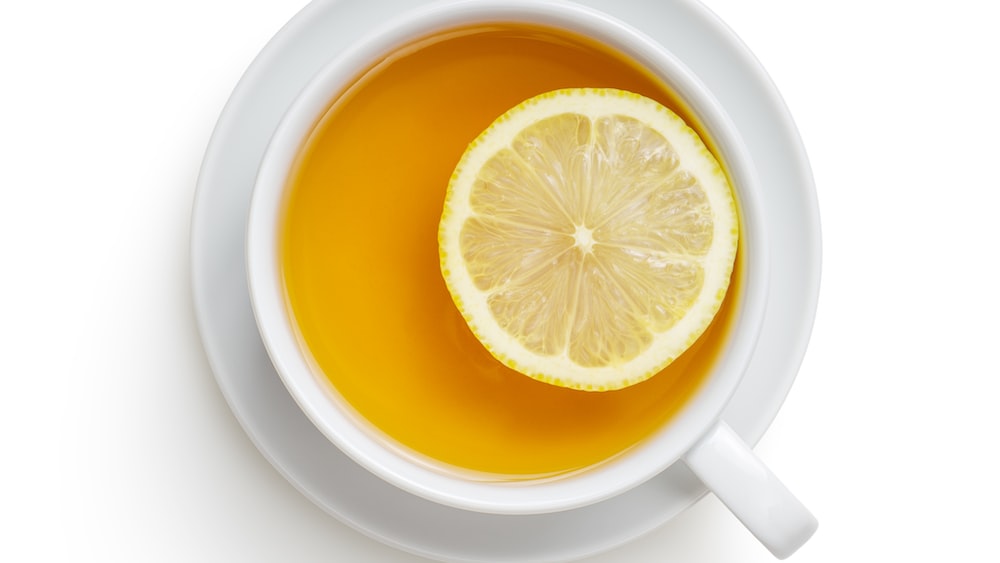
A noteworthy point here is the inverse relationship between calcium and oxalate. When calcium levels drop, oxalate levels surge, and this dastardly duo can crystallize to form kidney stones. Thankfully, sip by sip, rooibos tea can help keep this villainous duo in check.
Overall Health and Wellness Benefits
Strictly speaking, from a kidney stone’s perspective, low levels of oxalate are a serious downside, a clear disadvantage. However, for us humans, the low oxalate content in rooibos tea is a gold mine of wellness benefits. This cup of wonder packs a punch in the health quadrant, not just for kidney health but far beyond.
From improving digestion, boosting heart health, managing diabetes to reducing inflammation, the health benefits of rooibos tea extend to every cell in your body. Feeling stressed? Have a cup of Rooibos. Battling insomnia? Enjoy a nighttime brew. The wellness pros of this wonderful tea are rather endless, aren’t they?
Comparing Rooibos Tea with Other Teas
Now, let’s take our tea-loving selves on a deep dive into the world of tea, comparing rooibos with other popular variants. Every tea brings its unique flavor palette and health benefits to the table, but today, we’re putting on our ‘rooibos tea oxalate’ tinted glasses to see how they stack up against one another.
Rooibos Tea vs Green Tea
When we pit rooibos tea against green tea, the elephant in the room is caffeine. Yes, you heard me right, tea enthusiasts, one big point for team Rooibos here: it’s completely caffeine-free. Looking for a late-night tea fix without the jitteriness? The Rooibos is your reliable companion.
However, when it comes to oxalate content, green tea holds a higher rank, implying potential issues for those trying to control their calcium oxalate levels. But don’t be too hasty in writing off green tea; it does boast stellar antioxidant properties.
Rooibos Tea vs Black Tea
Ah, the age-old debate of rooibos tea vs black tea. In terms of oxalate content, our friend rooibos still holds the crown. Consumption of high-oxalate foods like black tea could increase the likelihood of dimly lit, insomniac nights spent fretting about kidney stones.
However, yanking black tea off your beverage list doesn’t sound too appealing, right? The pros of black tea encompass high antioxidant levels, potential heart health benefits, and of course, the delightful flavor that kick-starts many a morning.
Therefore, we aren’t proposing a complete overhaul. Perhaps just a tinge of moderation? A détente, if you like, between the warring worlds of taste and health. Reduce black tea, increase rooibos – sounds like a fair trade.
How to Incorporate Rooibos Tea in Your Diet
Got intrigued by the tantalizing world of rooibos? Excited to join the rooibos bandwagon but unsure how to incorporate this tea into your diet? Fear not! We’ll guide you to rooibos nirvana.
Best Time to Drink Rooibos Tea
There’s no primetime slot for a cup of rooibos. Ditch the alarm reminders and time charts because this caffeine-free elixir can be enjoyed any time of the day.
Morning brew to kick-start the day? Check! Afternoon tea to deal with the energy slump? Check! Bedtime brew to secure a night of relaxed, uninterrupted sleep? Triple check! Rooibos tea truly is an all-time beverage; no restrictions, just pure enjoyment.
Rooibos tea can be enjoyed at any time of the day, making it a versatile and enjoyable caffeine-free alternative to traditional teas.
Delicious Rooibos Tea Recipes
There’s simply no end to the flavors you can whip up with a pack of rooibos tea. Unleash your inner mixologist and watch the magic unfold! A little hint of honey, a dash of lemon, or even a teaspoon of vanilla can transform your cup of rooibos to a ticket to tea heaven.
Let’s start basic – ever tried a soothing Rooibos latte? This sweet, creamy delight is an absolute crowd-pleaser! Brew a strong cup, add warm frothy milk, drizzle honey to taste, and top it off with a dash of cinnamon. Voila! You now possess a sip of comfort.
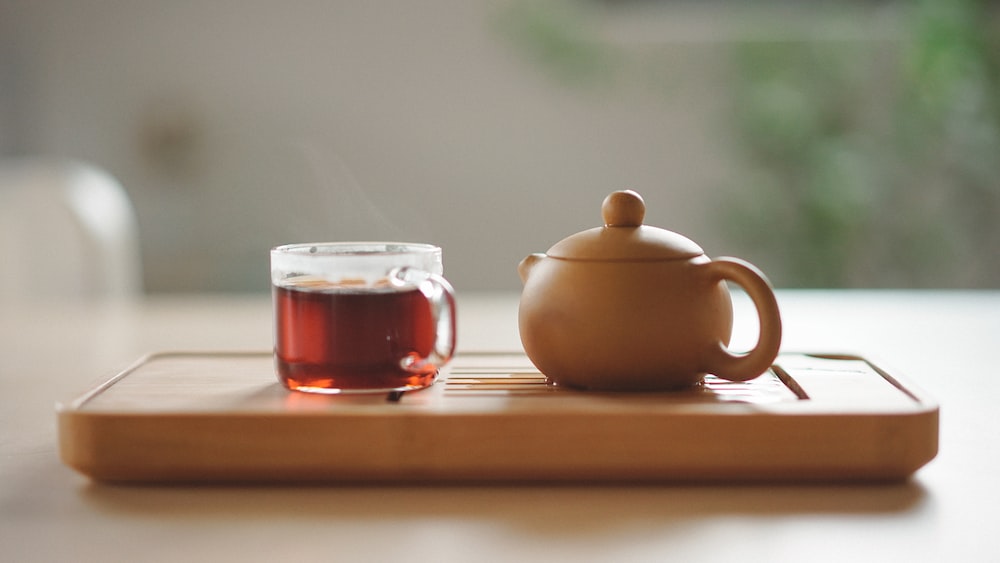
Looking for a refreshing beverage to beat the summer heat? Try the Rooibos Iced Tea! Brew your tea, add a squeeze of fresh citrus, sweeten with honey, pour over ice, and garnish with a sprig of mint. A sip of this winsome concoction shall transport your taste buds to a tropical paradise.
Got adventurous taste buds? Tickle them with a Ginger-Lemon Rooibos Tea. Steep rooibos tea with ginger, strain, pour into a cup, and squirt in some lemon juice. A zesty brew that tickles delightfully; sweet, tangy, and a bit spicy, talk about a rollercoaster for the taste buds!
Potential Side Effects of Rooibos Tea
Right, we’ve been singing praises for rooibos tea all along, but like every superhero, rooibos has its kryptonite. Now let’s explore the lesser-known, darker alleys of the rooibos tea world – its potential side effects.
Possible Liver Damage
Now, wouldn’t it be ironic if our wholesome, earthy rooibos tea turned rogue and played havoc with our liver? While you might be twisting your eyebrows, let me tell you this – according to some observational studies, excessive consumption of rooibos tea might lead to hepatitis. I know what you’re thinking, “Did my harmless cup of tea just become a Trojan horse?!” Well, in some rare cases, yes.
Though it’s like finding a needle in a haystack, there indeed have been isolated incidents of rooibos tea causing liver damage. Furthermore, people with liver conditions should tread lightly while hopping on the rooibos bandwagon. Think of it as Murphy’s law – whatever can happen, may happen. So, while we can clink our teacups happily, let’s also pay heed to our liver’s whispers!
Possible Kidney Damage
But wait, there’s another twist in this tea tale – enter, Kidney Damage. Oxalates, as cunning as ninjas in black, can conspire with calcium to form crystals that habitually hang out in our kidneys. Oh, the cheek! While rooibos tea is known for its low oxalate content, excessive consumption might increase the oxalic acid in our body, giving those bold little mineral hooligans a chance to create kidney stones.
Remember: moderation is key! Bountiful as its benefits may be, an overdose of anything, even our beloved rooibos tea, can lead to unforeseen circumstances. Perhaps, that’s just nature’s way of keeping us grounded. Who knew, right?
Increased Estrogen Levels
Moving on, let’s delve into another potential downside: heightened estrogen levels. Yes, you heard that right! Enjoying our rooibos tea 101 guide so far? I bet you didn’t see this one coming! Some studies suggest that drinking copious amounts of rooibos tea could boost estrogen levels. Now, this might sound like a boon for some, but it could also become a bane for others. Depending on individual health and hormonal balance, higher estrogen levels may have a range of effect, from minor health concerns to complex conditions.
FAQs
1. Is Rooibos Tea safe for daily consumption?
Rooibos Tea, with all its mineral-rich goodness, is generally considered safe for daily consumption. But remember, the idea is to keep a balance and not swing towards the extreme.
2. Can Rooibos Tea prevent kidney stones?
Rooibos Tea, being lower in oxalate content compared to some other teas, may contribute to reducing the risk of kidney stones. However, it’s no miracle cure, just another tool in your health arsenal!
3. What are the potential side effects of Rooibos Tea?
While joie de vivre and generally health-boosting, potential side effects of Rooibos Tea could include liver damage, increased estrogen levels, and possibly kidney damage in the light of excessive consumption.
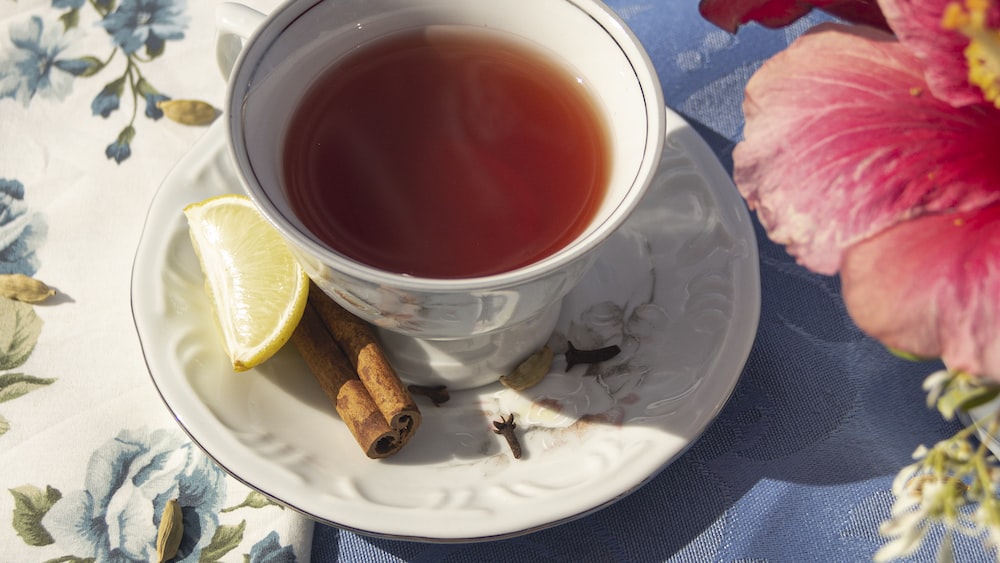
4. How does the oxalate content in Rooibos Tea compare to other teas?
When it comes to oxalate content, the rooibos tea grabs a lower rung on the ladder compared to other teas, making it a more kidney-friendly option for the daily tea devotee!
Conclusion
We’ve whirled through the verdant fields of the rooibos plant, delved into its low oxalate content, unmasked the benefits, and also unveiled some potential pitfalls. However, the riddle we started with remains – does the good outweigh the bad? Perhaps, armed with knowledge and a wholesome perspective, you can now confidently answer that question.
The facts unravel like an intricate tea ritual – it’s about balance. Dressed in the robe of moderation, accompanied by an understanding of your health needs, the cherished “rooibos tea oxalate” dance can be a graceful wellness waltz. After all, it’s not just about the tea we sip, but also the wisdom we steep!
Thank you for joining me on this enrichening journey in the land of rooibos tea. May your tea be fragrant, your health abundant, and your spirit high! Until our teapots meet again,
Zoe.

